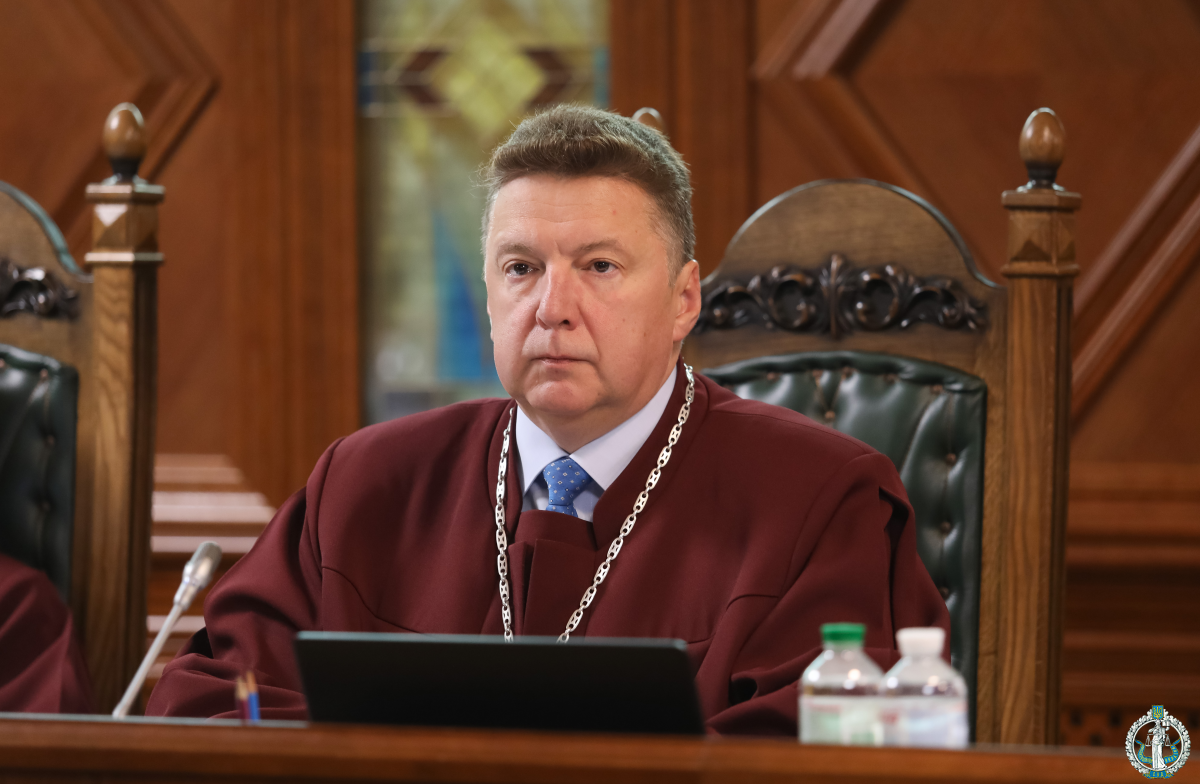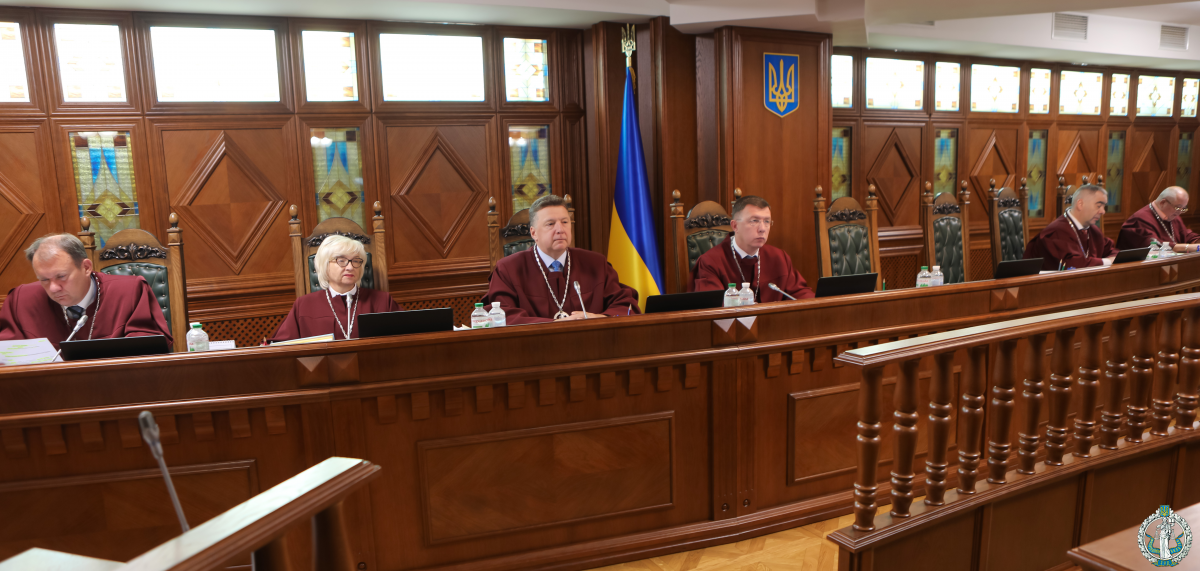25 September, 2024
On 25 September 2024, at the public part of the plenary session, the Second Senate commenced deliberation of the case upon the constitutional complaint of Mykola Starychenko regarding the constitutionality of an individual provision of 361.5.1 of the Code of Administrative Procedure of Ukraine in the form of written proceedings.
During the plenary session, the judge-rapporteur in the case, Viktor Gorodovenko, outlined the content of the constitutional complaint and the complainant's arguments.
He noted that Mykola Starychenko had filed a complaint with the Constitutional Court of Ukraine to verify the compliance of an individual provision of the provisions of Article 361.1.5 of the Code of Administrative Procedure of Ukraine (hereinafter, the “Code”) with Articles 8.1, 24.1, 24.2, 55.1, 55.3, 129.1.2, 1511, 1512 of the Constitution of Ukraine.
In accordance with Article 361.1.5 of the Code, the grounds for reviewing court decisions due to exceptional circumstances are “the unconstitutionality (constitutionality) of a law, other legal act or their individual provision applied (not applied) by the court in resolving the case, if the court decision has not yet been executed”.
The author of the petition actually asks to verify the compliance of Article 361.1.5 of the Code with the Constitution of Ukraine ‘in terms of the wording “if the court decision has not yet been executed”.
The content of the constitutional complaint and the materials attached to it show the following.
Mykola Starychenko filed a claim with the court of first instance to declare unlawful the inaction of the regional prosecutor's office, which consisted of failure to pay his salary in the manner and in the amounts determined by Article 81.3 of the Law of Ukraine “On the Prosecutor's Office” No. 1697-VII dated14 October 2014 as amended, and to oblige the defendant to take certain actions, since he did not agree to pay his salary in accordance with the Resolution of the Cabinet of Ministers.
The court dismissed the claim, which was upheld by the courts of appeal and cassation.
Thereafter, the complainant applied to the court of first instance for review of the court decision in exceptional circumstances in accordance with Article 361.5.1 of the Code, arguing that the Constitutional Court of Ukraine in the case (in particular, on his constitutional complaint) delivered Decision No. 8-r(II)/2023 dated 13 September 2023 (hereinafter, the “Decision”), by which it declared unconstitutional paragraph 3.3.2 of Section II “Final and Transitional Provisions” of the Law of Ukraine “On Amendments to Certain Legislative Acts of Ukraine on Priority Measures for the Reform of the Prosecution Service” No. 113-IX dated 19 September 2019 (hereinafter, “Law No. 113”), in terms of remuneration of employees of the prosecution service in accordance with the Resolution of the Cabinet of Ministers.
The courts of first instance and appeal dismissed Mykola Starychenko's claim. The Board of Judges of the Administrative Court of Cassation of the Supreme Court upheld the above court decisions, noting that “the decision of the Zaporizhzhia District Administrative Court, for review of which Mykola Starychenko applied under exceptional circumstances, is a court decision that dismissed the claim, and accordingly, this court decision is not subject to enforcement, therefore, within the meaning of Article 361.1.5 of the Code, it cannot be reviewed under exceptional circumstances”.
In addition, in this ruling, the court of cassation stressed that paragraph 3.2.3 of Section II of “Final and Transitional Provisions” of Law
No. 113, which was declared unconstitutional, ceases to be effective from the date of the Constitutional Court's decision, and therefore “is relevant for the resolution of subsequent cases and cannot be the basis for reviewing (changing) the legal position of the court in the dispute in which the final court decision was deliverded”.
The author of the complaint believes that an individual provision of Article 361.5.1 of the Code “is discriminatory and violates the rights of persons to review a court decision in exceptional circumstances, creates obstacles to the implementation of legal opinions of the Constitutional Court of Ukraine”; and also emphasises that “discrimination consists in the infringement of the right to apply for review of a court decision on the basis of newly discovered circumstances of those persons whose court decision has already been executed”.
Mykola Starychenko argues that Article 361 of the Code “does not set out the criteria by which one can determine whether a decision has been executed or not, and does not disclose the meaning of the phrase “if the decision has not yet been executed”, which makes it possible to understand it ambiguously and, as a result, to restrict the rights of litigants with the same legal status and to block the execution of decision of the Constitutional Court of Ukraine, levelling the principle of binding nature of court decisions, which is contrary to Article 147 of the Constitution of Ukraine”, and also notes that the disputed provision of the Code “if the court decision has not yet been executed’ allows for an ambiguous interpretation of the said provision”.
The subject of the right to a constitutional complaint notes that “the impossibility of reviewing court decisions in exceptional circumstances, even for a person whose constitutional complaint has been declared unconstitutional, is one of the most important problems of constitutional proceedings, which affects the proper effectiveness of decisions of the Constitutional Court of Ukraine delivered as a result of deliberation of constitutional complaints”.
After examining the case file in the public part of the plenary session, the Second Senate proceeded to the in-camera part of the plenary session.



